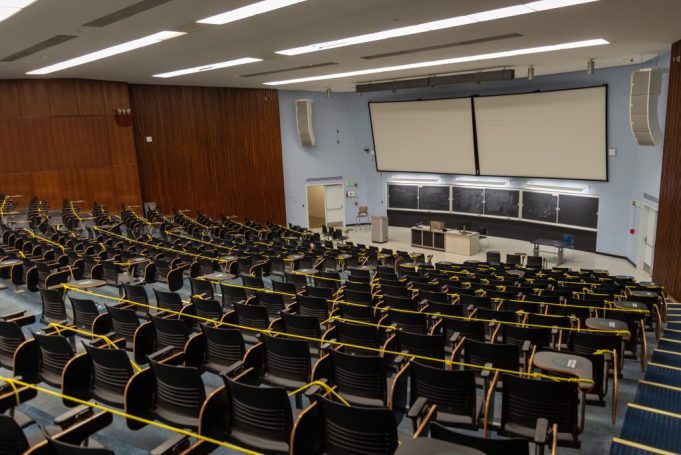By: Tengku Adrian Ismail
THE perception that the job of lecturers in Malaysia is relaxed and the pay is high can vary depending on several factors, including individual experiences, perspectives, and comparisons with other professions and countries. While some argue that they are adequately or even to the extent of overly remunerated for their expertise and contributions to academia, others contend that their salaries do not reflect the level of education, experience, and responsibilities they hold.
Before delving into the specifics of lecturer salaries, it is crucial to establish what constitutes being “well paid.” Beyond mere monetary compensation, it encompasses factors such as the ability to meet basic needs, enjoy a comfortable standard of living, and have financial security for the future. Additionally, recognition of expertise, job satisfaction, and opportunities for career advancement are integral components.
In Malaysia, university lecturers typically hold either a Master’s degree or a PhD. There’s a prevailing perception that those with PhD qualifications command higher salaries due to their advanced expertise and research capabilities. While this holds true to some extent, the disparity in pay between Master’s and PhD holders may vary depending on several factors, including institution type, experience level, and field of specialisation.
Experience often plays a pivotal role in determining lecturer salaries. Senior lecturers, with years of teaching, research, and administrative experience, tend to earn more than their younger counterparts. However, the gap between junior and senior lecturers’ salaries might not always be proportionate to their contributions and expertise, leading to disparities in compensation that are perceived as inequitable.
Another dimension to consider is the distinction between lecturers employed at public and private universities. Public university lecturers may be presumed as enjoying better packages and benefits compared to their counterparts in private institutions. This discrepancy can be attributed to differences in funding sources, organisational structures, and government policies regulating higher education.
New Lecturers with PhD vs. Government Staff
The perceived disparity in salary between new lecturers with PhDs starting at Grade 51 and other Malaysian government staff commencing at Grade 41 underscores systemic issues within the academic sector. Despite possessing advanced qualifications and specialised skills, new lecturers may find themselves at a lower pay scale compared to their counterparts in other government positions. This incongruity raises concerns about the valuation of academic expertise and the need for comprehensive reforms in remuneration policies.
While salaries can vary based on location, institution type, and specialisation, there are regions and institutions globally known for offering higher pay. Universities in the United States and Canada, including Ivy League schools and prestigious liberal arts colleges, typically offer competitive salaries due to robust funding and endowments.
In Europe, countries like Switzerland, Germany, and Nordic nations have well-funded higher education systems, with cities like Zurich, Munich, Stockholm, and Copenhagen being particularly attractive for academics seeking lucrative positions.
In the Middle East, nations such as Qatar, the UAE, and Saudi Arabia have invested significantly in their higher education sectors, offering competitive salaries, tax-free income, and generous benefits to attract talent from around the world.
Closer to our home country, the Asia-Pacific region sees countries like Singapore, Hong Kong, and Australia becoming sought-after destinations for academics due to competitive salaries, research opportunities, and professional development prospects in universities.
In addition, certain specialised institutions, such as business schools, medical schools, and technology-focused universities, may offer higher salaries to attract top talent in specific fields, leveraging substantial resources and industry partnerships.
Comparison to Malaysia
While Malaysia has its own higher education system and offers lecturer positions, the salaries and benefits may differ from those in the regions mentioned above. Malaysia may not always offer salaries as high as those in North America, Europe, the Middle East, or certain Asia-Pacific countries. However, Malaysia provides its own unique advantages, such as cultural diversity, lower cost of living, and potential opportunities for research and collaboration in specific fields.
Being a professor: The Ideal Occupation for Riches and Status?
In popular culture and societal perceptions, the title of “professor” often conjures images of intellectual prestige, academic accomplishment, and financial prosperity. However, the reality of academic life may not always align with these idealised notions. While some professors indeed enjoy comfortable salaries, recognition for their expertise, and esteemed positions within their fields, others may face financial constraints, job insecurity, and limited opportunities for advancement.
Perceptions of Riches
Intellectual Prestige: Professors are revered for their intellectual prowess, scholarly achievements, and contributions to knowledge generation and dissemination. The title of “professor” carries with it a certain level of respect and admiration within academic circles and society at large.
Job Stability: Tenured professorships offer a degree of job security and stability that is rare in many other professions. Tenure provides academic freedom, allowing professors to pursue research interests and express controversial opinions without fear of reprisal.
Competitive Salaries: In some cases, professors at prestigious universities or in high-demand fields may command competitive salaries, supplemented by consulting fees, research grants, and royalties from published works. These individuals may enjoy a comfortable standard of living and access to perks such as sabbaticals, travel grants, and conference attendance.
Perceptions of Status
Influence and Leadership: Professors often occupy influential positions within academia, serving as mentors, advisors, and thought leaders in their respective fields. They may also hold leadership roles within academic departments, research centres, or professional societies, further enhancing their status and visibility.
Public Recognition: Professors who achieve significant research breakthroughs, publish widely-cited papers, or receive prestigious awards and honours may garner public recognition and acclaim, elevating their status within the academic community and beyond.
Legacy and Impact: Professors have the opportunity to leave a lasting legacy through their teaching, research, and mentorship activities. Their work may shape the direction of their field, inspire future generations of scholars, and contribute to societal progress and innovation.
Myths of the Lecturer Profession in Malaysia
Lucrative Salaries: One common myth surrounding the lecturer profession in Malaysia is the perception of lucrative salaries. While some individuals may assume that university lecturers enjoy high incomes, the reality is that lecturer salaries vary significantly depending on factors such as qualifications, experience, institution type, and funding availability. Many lecturers, particularly those in entry-level positions or employed at private institutions, may face financial constraints and modest remuneration packages that do not align with the myth of substantial wealth.
Job Security: Another prevalent myth is the notion of guaranteed job security for lecturers in Malaysia. While tenured positions at public universities offer a degree of job stability, many lecturers work on short-term contracts or as adjunct faculty, facing uncertainties regarding their employment status and future prospects. The myth of ironclad job security may lead some individuals to overlook the challenges of securing long-term employment within academia and navigating the competitive academic job market.
Minimal Workload: There is a misconception that lecturers have minimal workloads and enjoy ample free time outside of teaching hours. In reality, lecturers often juggle multiple responsibilities, including teaching, research, administrative tasks, student supervision, and community engagement. The demands of academia can be intense and require lecturers to manage their time effectively to balance competing priorities. The myth of a light workload overlooks the dedication and effort required to excel in the lecturer profession.
Prestige and Glamour: Some individuals may perceive the lecturer profession as glamorous and prestigious, characterised by intellectual acclaim, public recognition, and esteemed status within society. While lecturers certainly play a vital role in shaping the minds of future generations and advancing knowledge, the realities of academia may not always align with perceptions of glamour and prestige. Lecturers face pressures to publish research, secure funding, and navigate bureaucratic processes, often without the fanfare or public attention associated with other professions.
Limited Career Opportunities: Contrary to popular belief, the lecturer profession offers diverse career opportunities beyond traditional teaching roles. Lecturers may pursue career paths in research, academic administration, curriculum development, corporate training, consulting, and entrepreneurship. However, the myth of limited career opportunities within academia may dissuade individuals from exploring the full spectrum of possibilities available to them.
Conclusion
The job of lecturers in Malaysia presents a multifaceted landscape characterised by varying factors. The workload, encompassing teaching, research, administrative duties, and more, demands a balancing act, especially during peak periods. While lecturer salaries in Malaysia may offer some level of competitiveness compared to other professions, considerations such as the cost of living and purchasing power parity need to be factored in.
Continuous professional development is integral for lecturers to stay current in their fields, but it requires additional time and effort. Lecturers also face challenges and pressures inherent to the profession, including meeting academic standards, securing funding, and navigating institutional dynamics, which can affect job satisfaction and perceived workload.
The perception of lecturers enjoying a relaxed job and high pay may not always align with reality, as it can be influenced by societal attitudes and limited understanding of the profession’s demands. Many a time, the reality often entails hard work, dedication, and continuous professional development. After all, a smooth sea never made a skilled sailor.
Note: The viewpoint presented belongs exclusively to the author.

















